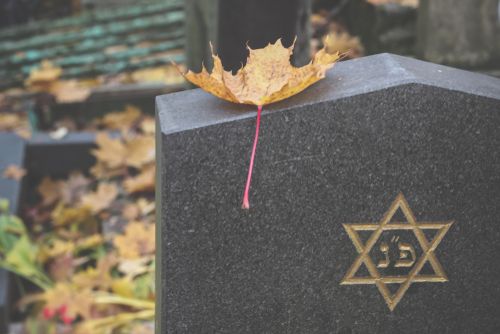 Jewish people believe they should embrace both life and the inevitability of death. Judaism concerns itself with how people live their lives, and it doesn’t specifically talk about an afterlife. However, Jews do believe in an eternal soul, a world to come, and the resurrection of the deceased. Here’s what happens when a Jewish person passes away.
Jewish people believe they should embrace both life and the inevitability of death. Judaism concerns itself with how people live their lives, and it doesn’t specifically talk about an afterlife. However, Jews do believe in an eternal soul, a world to come, and the resurrection of the deceased. Here’s what happens when a Jewish person passes away.
The Timing of the Burial
Jews are buried within 24 hours of death, unless that would fall on the Sabbath or a holiday, in which case, burial is postponed. Holding the funeral as soon as possible upholds the principle of k’vod hamet — honoring the dead.
Once someone passes away, the first thing loved ones do is to call their synagogue and speak with the rabbi. The synagogue will take over many of the funeral arrangements.
The Chevra Kaddisha
Most synagogues have a Chevra Kaddisha — a group of people who prepare bodies for funerals. Men prepare men for their funerals, and women prepare women.
The bodies are washed from head to toe, and while the bodies may be turned to wash, they are never placed face down. The exception to washing the body is if there was an injury involving blood being spilled; Jews believe that the body as a whole must be buried. That includes their blood.
The bodies are then dressed in tachrichim — simple white burial shrouds that eliminate any differentiation between the rich and the poor. Men may be buried in their tallitot — prayer shawls — with one fray cut off to render the tallitot ineffective.
The bodies are placed in a simple pine box for two reasons. The first is to equalize the rich and poor. The second is to allow for more rapid decomposition, following the Tanakh’s teaching, "For dust you are, and to dust you shall return."
The body is not left alone until the funeral. This practice, shmira — guarding or watching — is another way of honoring the dead. A family member or a member of the Chevra Kaddisha will recite Tehilim — psalms — while a friend or relative sits with the body.
The Rending of the Garments
Before the funeral, either the immediate family members themselves or the rabbi conducting the service will tear the collar of their shirts to symbolize their loss. If the rabbi tears the clothing, he will say, “Baruch atah Hashem Elokeinu Melech haolam, Dayan ha’emet” — “Blessed are you, Lord our God, Ruler of the universe, the true Judge.”
When other people hear of a death, they’ll say a shorter version of this: “Baruch Dayan Emet” — “Blessed is the one true Judge.”
Reform Jews don’t rend their clothing. Instead, the rabbi will affix black ribbons to the immediate family members and cut the ribbon to symbolize the rending of the garments.
The Funeral and Burial
At the funeral, the casket is closed to honor the decedent. The rabbi and others will recite psalms, say prayers, and give eulogies. After the eulogy, the El Maleh Rachamim — memorial prayer — is given before the casket is carried out by male members of the Chevra Kaddisha. Attendants at the funeral remain standing until the family members of the deceased have left the room.
People who attend the funeral but not the burial may fulfill the mitzvah (good work or blessing) of leveyat hamet (escorting the dead) by walking behind the hearse for a time.
At the graveyard, the men carrying the casket will stop seven times to recite Psalm 91. Once the coffin is lowered into the ground, the rabbi will repeat the psalm and the El Maleh Rachamim. Mourners will throw dirt into the grave to have a sense of closure.
The Jewish funeral is a simple one, but one full of ritual and meaning. This beautiful ceremony shows that all are equal in death and blesses those who mourn.
Add Your Comment